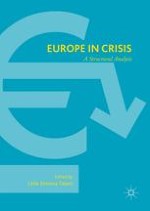2016 | OriginalPaper | Buchkapitel
8. The Pros and Cons of ‘de facto’ Polish Opting-Out of the EMU
verfasst von : Serena Giusti, Lucia Tajoli
Erschienen in: Europe in Crisis
Verlag: Palgrave Macmillan UK
Aktivieren Sie unsere intelligente Suche, um passende Fachinhalte oder Patente zu finden.
Wählen Sie Textabschnitte aus um mit Künstlicher Intelligenz passenden Patente zu finden. powered by
Markieren Sie Textabschnitte, um KI-gestützt weitere passende Inhalte zu finden. powered by
